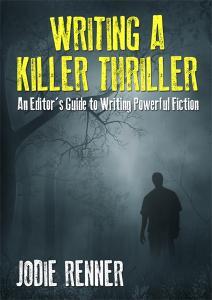Voice: that elusive but critical ingredient of powerful fiction

Voice – what is it exactly?
Literary agents and acquiring editors always say they’re looking for fiction with a compelling, unique, fresh, natural voice. Then when asked to define it, they hum and haw a bit, searching for the right words to try to capture what they mean by a voice that appeals to readers and makes them want to keep reading.
From what I’ve gathered from my varied reading and workshops, the ideal “voice” is that natural, appealing, charismatic tone and style that draws us in and makes us feel like we know the characters well—and want to get to know them better!
How can we develop an appealing voice?
These tips, a mix of advice from others and my own ideas, will be helpful to both fiction and nonfiction writers who are still in the process of finding their voice or fine-tuning it to make it more relaxed, powerful and appealing.
* Don’t lecture your readers. As Bruce DeSilva said in his workshop on this topic at Craftfest, many aspiring authors need to first free themselves from the constraints of their more formal, correct writing background, especially if it includes graduate degrees and a lot of legal, academic or business writing. So shake yourself loose of all those constraints and find your more casual, accessible, appealing inner voice. How do you do that?
* Write in a clear, direct way. Forget all those long, convoluted sentences and pretentious words and learn to write in a clear, direct, accessible, casual style that evokes the senses and appeals to the emotions. Streamline your writing!
* Write to one person. To help develop a closeness with your readership and a conversational tone, create or choose one single person you’re writing to, who is warm, friendly, open to your ideas, interested, and intelligent. DeSilva suggests choosing a close friend or family member to write to, but personally, I advise against writing to someone in your inner circle, as you might end up skipping over a lot of details and points that need to be there for other readers who don’t share your basic frames of reference. So I suggest creating an ideal reader. Write a brief description of their age, gender, background, home and work situation, personality, and interests (which of course include reading your kind of writing!). Get to know them a bit by giving them some positive attributes that will help you feel comfortable and open with them. Then target your writing to this person. Relax and let the real you come through.
* Read and imitate writers whose voice you really enjoy. Don’t copy their words verbatim, of course, but immerse yourself in their story world, told in their unique voice. Read their books aloud to really internalize the rhythm of their language, the phrasing and expressions and word choices that appeal to you so much. Then of course adapt the cadence and rhythm and attitudes and vocabulary to your own situation.
* Write a chapter in first-person, then change it to third person. One author whose voice I love is Janet Evanovich, whose spunky, quirky heroine, Stephanie Plum, narrates her story in first-person point of view. But it’s hard to write first-person well, and it can be limiting, as you’re confined to scenes where this character is present. Also, first-person isn’t always the best choice for, say, a thriller, as you want other viewpoints in there, too, notably that of the antagonist. But try writing several pages or a chapter or two in first-person (“I”), to develop your main character’s unique voice, then just go back and rewrite them in third person (he/she), with as few changes as possible.
* Read your story out loud to test its authenticity and easy flow. As DeSilva says, your writing should have the rhythm and comfortable familiarity of spoken language. If it doesn’t flow easily, go in and streamline the language to take out the convoluted sentences, clunky phrasing, and fancy-shmancy words. Or hire a trusted writer friend or reputable freelance editor to go through it for you to take out anything that sounds too formal, wordy, or erudite.
* Write in deep point of view or close third. This means the story is unfolding mainly through the thoughts and reactions and emotions and attitudes of your protagonist. Even descriptions of your setting should be filtered through your protagonist’s (or other POV character’s) preferences, views, and mood. This ensures that your whole novel has a great, unique voice, not just the dialog.
* Give each character their own voice. When you’re writing dialogue, each character should sound different, with their own unique speech patterns, word choices, slang and expressions, based on their milieu, upbringing, education, and personality. Listen in on all kinds of conversations, both in real life and on TV and in movies. Develop an ear for how different people speak. To improve the idiosyncratic speech of a character in your novel, try journaling in their voice, in first person. Just write freely, using lots of attitude! Eventually, you’ll get into their rhythm and find the words that seem to suit them best.
So break free from the constraints of your background, education, and any more formal work-related writing, and write the story only you can write, with your unique background and experiences and personality, in your own direct, open, interesting voice. Don’t hold back—reveal yourself.

Jodie Renner is a freelance editor specializing in thrillers, mysteries, and other crime fiction, as well as YA, mainstream and historical fiction. Jodie’s craft-of-fiction articles appear regularly here and on five other blogs. For more information on Jodie’s editing services, please visit her website at www.JodieRennerEditing.com.
Jodie’s e-booklet, Writing a Killer Thriller – An Editor’s Guide to Writing Powerful Fiction, is available for your Kindle and also as a PDF, both for just $0.99.
